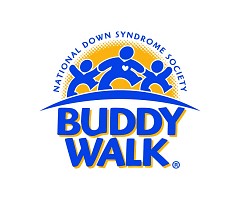Words Shape Attitudes – People First Language
The words that people use can help all individuals to lead more complete and enriching lives. Words can also create barriers and reinforce stereotypes. The primary goal of this statement is to ensure that correct language is used when talking, or writing, about individuals with Down syndrome.
• The correct name of this diagnosis is Down syndrome. There is no apostrophe (Down). The “s” in syndrome is NOT capitalized (syndrome).
• An individual with Down syndrome is an individual first and foremost. The emphasis should be on the person, not the disability. Down syndrome is just one of the many words that can be used to describe a person. Do NOT say, “That child is a Downs”. A child with Down syndrome, an adult with Down syndrome, or a person with Down syndrome is a more appropriate way to discuss a person with this condition.
• Words can create barriers. Try to recognize that a child is “a child with Down syndrome” or that an adult is “an adult with Down syndrome”. Children with Down syndrome grow into adults with Down syndrome; they do not remain “eternal children”. Adults enjoy activities and companionship with other adults.
• Encourage people to use person-first language, i.e. “The person with Down syndrome”, NOT “The Down syndrome person”! Identify individuals with Down syndrome as an individual, a friend, a student, or a family member.
• It is important to use the correct terminology. A person has mental retardation, rather than “suffers from”, “is a victim of”, “is diseased with”, or “is afflicted by”. A person with Down syndrome is NOT “a Downs”.
• Ask yourself if using the words “poor”, “pitiful”, or “unfortunate” when referring to an individual with Down syndrome is in his/her best interest.
• Each person has his/her own unique strengths, capabilities and talents. Try not to use the clichés that are so common when describing an individual with Down syndrome. To assume all people have the same characteristics or abilities is degrading. Also, it reinforces the stereotype that “all kids with Down syndrome are the same”.
• Most important, look at the person as an individual—your child, your family member, your student, your friend. Proudly acknowledge their individuality and their accomplishment. Remember, persons with Down syndrome are more alike us than different. They have feelings too and are hurt by cruelty, stares and name-calling. They want to be included in your groups, not excluded.
The above clarifies the meaning of and emphasizes the importance of language when referring to individuals with Down syndrome.
The Rapidian, a program of the 501(c)3 nonprofit Community Media Center, relies on the community’s support to help cover the cost of training reporters and publishing content.
We need your help.
If each of our readers and content creators who values this community platform help support its creation and maintenance, The Rapidian can continue to educate and facilitate a conversation around issues for years to come.
Please support The Rapidian and make a contribution today.

